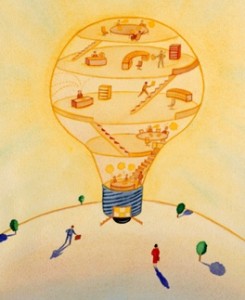
“Learn fast to succeed early.” Yes. “Fail fast to succeed early.” No!
The right concepts move us forward. The wrong concepts hold us back.
In Silicon Valley it is often said, “You must fail fast to succeed early.” That is tragically wrong. The goal is never to fail fast. It is also demoralizing.
Particularly in Asia and many parts of Europe, “failing” can be traumatic. When failure is demanded from would-be innovators, many show concern and doubt, wondering if they can do what is required.
In fairness to those who say this, what they mean is that you have to be aggressive about getting the answers needed. Whatever the plan, it will change as an innovator moves forward because little is known at the start. And, of course, no matter how smart and diligent an innovator is, the market is constantly changing, endlessly demanding, and often unpredictable, so success is seldom certain. As is similarly said about war, “No business plan survives contact with the market.”
Value creation — the development of a new innovation, is a learning process, not a failing process. When this is pointed out, most people show relief and enthusiasm because learning is a known skill. Of course, like with all learning, mistakes are made. But at no point is failure the objective. And, as with all deep learning, like that required to be a successful innovator, the goal is to master the concepts so well that one’s creativity is unleashed.
Thomas Edison deeply understood this. He famously said, “I have not failed. I’ve just found 10,000 ways that won’t work.” Hundreds of experiments were often performed to learn what worked, or not, and to inspire his creativity. He believed in rapid, urgent, discovery and learning. Edison was unrelenting in his quest for new knowledge to address important societal needs.
Once value creation is accepted as a learning, searching, and creating process, the next logical question is, “How do we learn, search, and create the best?” The learning sciences tell us what works: doing the task, real-time feedback, multiple representations, working in teams, having a mentor, and using motivating incentives. In addition, learning must be focused on the few “big ideas” and the entire process integrated into an effective learning system.
Innovation, like all intellectual disciplines, has its own language, concepts, and conceptual frameworks. In addition it is experiential. You can only become an expert innovator by doing it. In this, it has much in common with becoming an accomplished musician.
All the elements listed are required to create an effective value creation system. Over time, each of these topics will be covered in detail at the Practice of Innovation. Experience proves that when these fundamentals of innovation are properly implemented, innovative performance is profoundly improved.